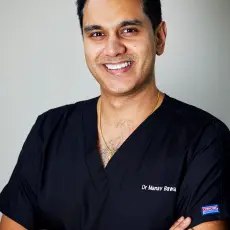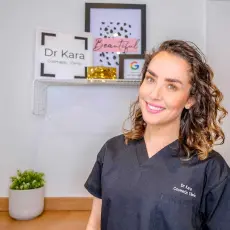Introduction
In February 2022, an amendment was made to the Health and Care Bill to give the Secretary of State the power to introduce a licensing scheme for cosmetic procedures in England. The Bill received royal assent in April 2022, but no legislation has been prepared or passed to license cosmetic procedures. The scope and details of any potential licensing scheme will be determined via extensive engagement including a public consultation.
As the largest and longest established PSA accredited register, Save Face have been actively involved in all discussions and stakeholder meetings with policy makers and ministers. During these meetings, we have been able to contribute our proposals which are based on nearly a decade’s worth of evidence gathered from practitioner and clinic audits as well as patient reported complaints, complications and adverse reactions. This unique insight has enabled Save Face to submit evidence-based feedback to best address the risks posed to the public.
We are aware that there is a lot of speculation and misinformation being disseminated. Outlined below is a factual summary of what is and is NOT being reviewed at this stage of the process.
Stage 1 – Public Consultation
On Saturday the 2nd of September, the Government announced the launch of the first stage of the public consultation into the potential licensing of cosmetic procedures. Save Face was signposted by the Department of Health and Social Care (DHSC) as a media contact to discuss the consultation and we were featured on several high-profile TV and media sources including; BBC Breakfast, BBC News, ITV NEWS, BBC 5 Live, BBC Radio 4, GB News, LBC News and in most national newspapers.
People and businesses are being invited to share their views on how to make non-surgical cosmetic procedures – including Botox, laser hair removal and dermal fillers – safer. This includes age limits and restrictions for high-risk procedures, including those involving injecting fillers into intimate parts of the body - including the breasts and buttocks.
Here is a link to complete the online consultation. We urge anyone who has an interest in this field to share their views.
The consultation closes at:
11:59pm on 28 October 2023
What is being proposed at this stage?
The government is inviting views on:
Treatments that should be included
The scheme will be focused on addressing ‘cosmetic procedures’, which is defined as a procedure, other than a surgical or dental procedure, that is or may be carried out for cosmetic purposes; and the reference to a procedure includes:
(a) the injection of a substance
(b) the application of a substance that is capable of penetrating into or through the epidermis
(c) the insertion of needles into the skin
(d) the placing of threads under the skin
(e) the application of light, electricity, cold or heat
Who will be able to perform each procedure?
The list of procedures have been divided into subcategories based on risk.
The categories are as follows:
Green - procedures with the lowest risk of complications. All practitioners are eligible to perform licensed procedures where they meet agreed standards. Treatments include:
- microneedling
- mesotherapy
- intense pulsed light (IPL) and light emitting diode (LED) therapies
- chemical peels that involve destruction only into viable epidermis (the outermost layer of the skin)
- ‘no-needle’ fillers including pneumatic devices that use intense pressure to pass substances through the epidermis
- micropigmentation (semi-permanent make up), including microblading and nanoblading
- non-ablative laser hair removal
- photo rejuvenation (the use of a laser to treat skin conditions including wrinkles, acne scarring, sun damage)
Amber: procedures with medium risk of complications. Non-healthcare professionals must be licensed and have relevant oversight by a named regulated healthcare professional (who has gained an accredited qualification to prescribe, administer and supervise aesthetic procedures). Qualified and regulated healthcare professionals are eligible to perform these procedures without oversight where they meet agreed standards.
Treatments in this category include:
- botulinum toxin injections
- semi-permanent dermal fillers injected into the face only
- biorevitalization injections and/or any injection of hyaluronic acid
- vitamin and mineral injection procedures
- platelet rich plasma (PRP) therapy for cosmetic purposes and Biofiller
- injection microsclerotherapy (spider vein treatment)
- weight loss injections
- carboxytherapy and/or the infusion of gases under the skin
- cellulite subcision
- injection lipolysis with a POM
- cryolipolysis
- high intensity focused ultrasound (HIFU), including intimate use
- radiofrequency treatments
- plasma ablation or plasma fibroblast
- non-ablative lasers (excluding photo rejuvenation and laser hair removal)
- medium depth peels that involve full thickness destruction of entire epidermis into upper dermis (the inner layer of the 2 main layers of the skin)
- POM treatments applied topically for cosmetic purposes, such as prescription strength vitamin A and hydroquinone for the treatment of pigmentation problems or for skin whitening
- electrocautery
- the combination of 2 or more technologies to create a hybrid device. For example, the combination of radiofrequency and microneedling to treat lines, wrinkles, sagging skin, acne scars and stretch marks
- cryotherapy and/or any cryocautery procedure that freezes the skin in order to remove skin lesions such as skin tags, age spots and warts
Red: procedures with the highest risk of complications. It is proposed that certain high-risk procedures will be restricted to specified regulated healthcare professionals and be regulated by the CQC.
Such procedures would not be included within the local authority licensing scheme.
These procedures include:
- all thread lifting procedures, including PDO thread and cog lifts
- hair restoration surgery
- procedures aimed at augmenting any part of the body, in particular the breast, buttocks and genitals, typically using autologous fat or dermal fillers
- dermal micro-coring
- hay fever injections for reducing redness or blotches on the skin
- the combination of ultrasound and large bore cannula for the purposes of liposuction
- deeper chemical peels such as phenol peels
- lasers which target the deeper layers of the dermis. For example, CO2 lasers, where used for extensive fully ablative resurfacing
- the provision of any green or amber procedure where the circumstances of the provision meet the criteria for the procedure to be classed as the CQC regulated activity of treatment of disease, disorder or injury (TDDI)
- all intravenous injectables and infusions
Minimum age of clients
The Botulinum Toxin and Cosmetic Fillers (Children) Act 2021 made it an offence for a person to administer botulinum toxin, or a filler by way of injection for a cosmetic purpose, to a person under 18 in England. The act also made it an offence to make arrangements to undertake, or arrange for another person to undertake, these procedures on a person under 18 in England.
It is being proposed that the licensing scheme requirements or conditions will prohibit practitioners from performing any procedures included within the scheme on people under the age of 18 unless the procedure has been approved for use on a person under 18 by a GMC registered doctor and is carried out by a specified healthcare professional.
What is not included?
We felt it was also important to give a factual summary of the topics that have not been actioned as we have received several queries from concerned practitioners asking how this will impact on their practice.
Training and education requirements
There is a lot of misleading information being circulated about this, we have received several queries from practitioners who have been told that they must have a Level 7 qualification in order to practice. The simple fact is that nothing has been decided upon with regards to training and educational standards. As part of a recent dialogue with the DHSC, they confirmed:
‘I can confirm that no decisions have been made re: the qualification levels that will apply to the licensing scheme – work in this area will be informed by stakeholders and a public consultation’.
Work in this area has not yet begun. The Government will review the responses submitted to this consultation which will close on the 28th of October before moving on to other areas.
Practice standards
Work in this area has not yet begun. The Government will review the responses submitted to this consultation which will close on the 28th of October before moving on to other areas.
Premises standards
Work in this area has not yet begun. The Government will review the responses submitted to this consultation which will close on the 28th of October before moving on to other areas.
What can I do now to ensure I am practicing to the highest standards?
Save Face currently upholds the highest standards that exist for non-surgical cosmetic procedures. Our standards incorporate all regulatory and professional standards requirements as well as sector-specific best practices. Our accreditation model is designed to ensure that practitioners can implement and uphold a medical model in all aspects of their practice to safeguard themselves and their patients. Upon registration, we provide you with all the practical tools and resources you need to implement the required standards and our assessment processes verify that they have been appropriately applied. Being Save Face Accredited provides assurance to the public and gives practitioners the confidence of knowing that their practice meets our government approved standards. Save Face registered practitioners are also eligible to sit the RSPH-regulated Medical Aesthetic Certificate in the Understanding the Safe Use of Botulinum Toxin and Dermal Fillers in Cosmetic Procedures for free.
Ongoing communication and updates:
Save Face will continue to contribute and engage with the DHSC and the Government on this topic and will keep you abreast with any changes and developments as and when they occur.
Save Face Director Ashton Collins and Clinical Director Emma Davies will be doing a video update on this topic and will include some Frequently Asked Questions. If you have any questions or concerns you would like to be addressed, please email them to: info@saveface.co.uk







